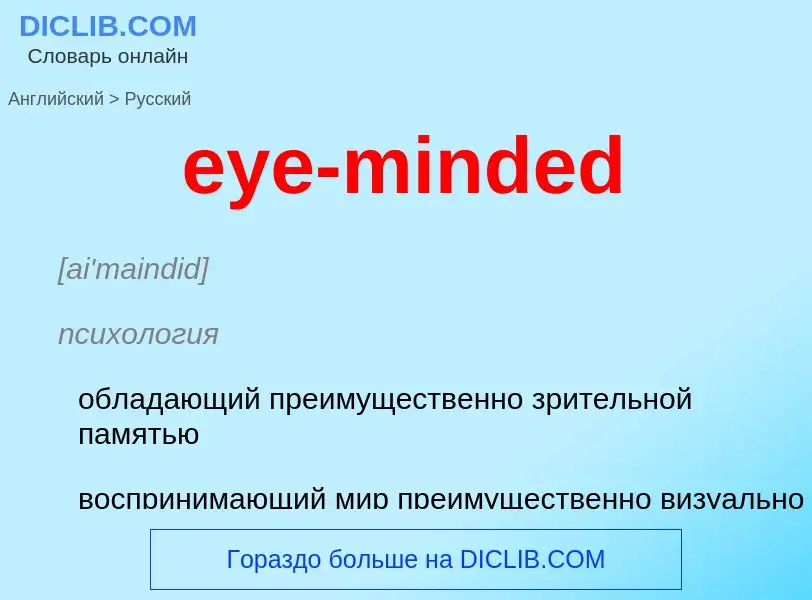Vertaling en analyse van woorden door kunstmatige intelligentie ChatGPT
Op deze pagina kunt u een gedetailleerde analyse krijgen van een woord of zin, geproduceerd met behulp van de beste kunstmatige intelligentietechnologie tot nu toe:
- hoe het woord wordt gebruikt
- gebruiksfrequentie
- het wordt vaker gebruikt in mondelinge of schriftelijke toespraken
- opties voor woordvertaling
- Gebruiksvoorbeelden (meerdere zinnen met vertaling)
- etymologie
eye-minded - vertaling naar russisch
[ai'maindid]
психология
обладающий преимущественно зрительной памятью
воспринимающий мир преимущественно визуально
прилагательное
психология
обладающий преимущественно зрительной памятью
воспринимающий мир преимущественно визуально
Definitie
Wikipedia

"The Absent-Minded Beggar" is an 1899 poem by Rudyard Kipling, set to music by Sir Arthur Sullivan and often accompanied by an illustration of a wounded but defiant British soldier, "A Gentleman in Kharki", by Richard Caton Woodville. The song was written as part of an appeal by the Daily Mail to raise money for soldiers fighting in the Second Boer War and their families. The fund was the first such charitable effort for a war.
The chorus of the song exhorted its audience to "pass the hat for your credit's sake, and pay– pay– pay!" The patriotic poem and song caused a sensation and were constantly performed throughout the war and beyond. Kipling was offered a knighthood shortly after publication of the poem but declined the honour. Vast numbers of copies of the poem and sheet music were published, and large quantities of related merchandise were sold to aid the charity. The "Absent-Minded Beggar Fund" was an unprecedented success and raised a total of more than £250,000.


